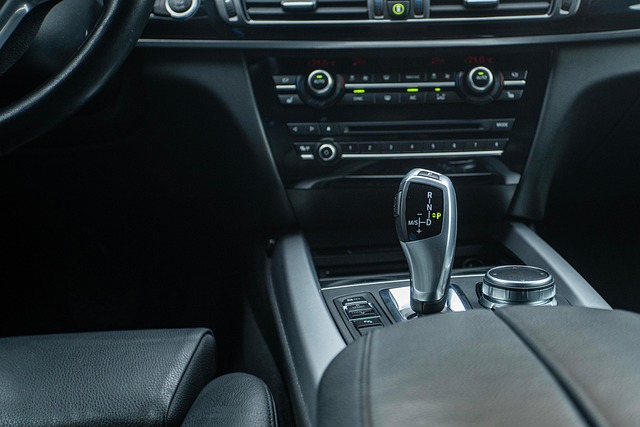# AI Technology Advancements: How Intelligent Systems Are Redefining Our Future and Daily Interactions
Artificial Intelligence (AI) has rapidly evolved over the past few decades, transitioning from theoretical concepts to practical applications that permeate our daily lives. As intelligent systems continue to advance, they are reshaping not only the way we interact with technology but also how we engage with one another. This article delves into the significant advancements in AI technology, exploring their implications for our future and daily interactions.
## The Evolution of AI: From Concept to Reality
Initially, the concept of artificial intelligence was limited to academic research and speculative fiction. Early AI systems were rudimentary, primarily focusing on simple tasks and rule-based algorithms. However, the advent of machine learning and neural networks has dramatically transformed the landscape. These technologies enable systems to learn from vast amounts of data, improving their performance over time and allowing for more complex interactions.
In recent years, breakthroughs in natural language processing (NLP) have led to the development of sophisticated conversational agents, such as chatbots and virtual assistants. These AI-driven tools can understand and generate human language with remarkable accuracy, making them invaluable in customer service, healthcare, and personal assistance. As these systems become more adept at understanding context and nuance, they are increasingly integrated into our daily routines, enhancing efficiency and accessibility.
Moreover, the rise of deep learning has facilitated advancements in computer vision, allowing AI to interpret and analyze visual data. This capability has profound implications for various industries, including autonomous vehicles, security, and healthcare diagnostics. By enabling machines to “see” and understand the world around them, AI is redefining how we interact with our environment and make decisions.
## Transforming Daily Interactions: AI in Everyday Life
Daily interactions are becoming increasingly influenced by intelligent systems, which are seamlessly integrated into our routines. Consider the role of AI in smart home devices, which allow users to control their environment through voice commands or mobile applications. These systems not only enhance convenience but also improve energy efficiency and security, demonstrating how AI can create a more comfortable and sustainable living space.
In the realm of communication, AI-powered tools are revolutionizing how we connect with others. Email filtering systems, for instance, utilize machine learning algorithms to prioritize messages, ensuring that important communications are not overlooked. Social media platforms leverage AI to curate content tailored to individual preferences, fostering engagement and connection among users. As these technologies continue to evolve, the potential for more personalized and meaningful interactions grows, allowing us to forge deeper connections in a digital world.
Healthcare is another domain where AI is making significant strides. Intelligent systems are being employed to analyze patient data, predict health outcomes, and provide personalized treatment recommendations. By streamlining administrative processes and enhancing diagnostic capabilities, AI is not only improving patient care but also empowering healthcare professionals to focus on what truly matters: the well-being of their patients. The integration of AI in healthcare exemplifies how intelligent systems can enhance human interactions and improve overall quality of life.
## The Future of Work: AI as a Collaborative Partner
As AI continues to advance, its impact on the workplace is becoming increasingly pronounced. Intelligent systems are not merely replacing jobs; they are augmenting human capabilities and transforming the nature of work itself. For instance, AI-driven analytics tools can process vast amounts of data, providing insights that enable employees to make informed decisions more quickly. This collaboration between humans and machines fosters a more efficient and innovative work environment.
Furthermore, AI is paving the way for new job roles that require a blend of technical and interpersonal skills. As automated systems take over repetitive tasks, the demand for professionals who can leverage AI tools to drive strategic initiatives is on the rise. This shift necessitates a reevaluation of education and training programs to equip the workforce with the skills needed to thrive in an AI-enhanced landscape.
Collaboration between humans and AI is also evident in creative fields. Artists, designers, and writers are increasingly using AI as a source of inspiration and assistance. For example, AI algorithms can generate music, artwork, and even assist in writing, pushing the boundaries of creativity. This partnership opens up new avenues for innovation and expression, demonstrating that AI can be a powerful ally rather than a competitor.
## Conclusion: Embracing the AI-Driven Future
As we navigate the complexities of an AI-driven world, it is essential to embrace the opportunities that intelligent systems present. The advancements in AI technology are not just reshaping industries; they are redefining our daily interactions and the way we perceive our roles in society. By understanding and harnessing the potential of AI, we can create a future that enhances human capabilities and fosters meaningful connections.
In conclusion, the evolution of AI technology is a testament to human ingenuity and innovation. By integrating intelligent systems into our lives, we are not only improving efficiency and convenience but also enhancing our ability to connect with one another. As we move forward, it is crucial to remain vigilant about the ethical implications of AI and ensure that these technologies are developed and deployed responsibly. Ultimately, the future of AI holds immense promise, and by embracing it, we can redefine our interactions and create a better world for generations to come.











